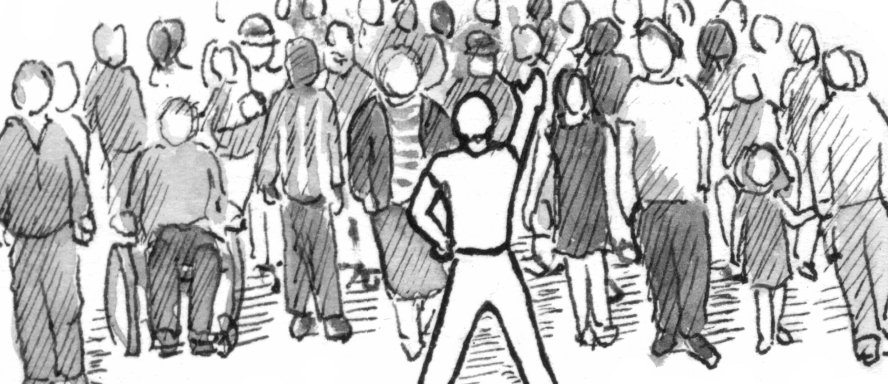This post takes a look at the experiences of political activists in East Germany (GDR) who had to deal with Stasi informants and infiltration before the fall of the Berlin Wall in 1989. Continue reading “Stasi Tactics – Zersetzung”
Writing the Stasi – guest post by Fiona Rintoul

“Stasi” was the first new vocabulary item I learnt when I arrived at the Karl-Marx-University Leipzig as an exchange student in the 1980s. Short for Staatsicherheit – the hated East German secret service – Stasi was a word you whispered, like the name of a terrible disease. Continue reading “Writing the Stasi – guest post by Fiona Rintoul”
Are Referendums Democratic?
This post was written just afer the EU referendum in the UK in 2016, but I haven’t updated it because I believe the central points still stand.
In the wake of the Brexit vote many voices in the media proclaimed that direct democracy leads to a tyranny of the majority, even mob rule.
In this post I’ll be considering whether this is the case, and suggesting some conditions I feel are needed to have a fair referendum.
Continue reading “Are Referendums Democratic?”
For Our Country
(This article was originally written for and posted on the website of the interdisciplinary academic network Cultures of the Cold War.)
In the counter-factual novel Stealing The Future the rift with reality is pinpointed as beginning on the 4th November 1989, but the subsequent publication of the For Our Country Statement played a significant role in building East Germans’ confidence in their ability to remain independent of West Germany. Continue reading “For Our Country”
Political Structures in Stealing the Future
Where to start?
When writing a political novel the author needs to be very clear about the political structures that form the framework of the story, not to mention how they work on a day-to-day basis (indeed it is the tension between the theory and the practice of these institutions that provide the gaps that allow such stories to be developed).
The reader of Stealing the Future will have picked up on the fact that there are parliaments at several levels (Volkskammer at the federal level, and the Landeskammern at the Land, or regional level). But in Martin’s everyday life, most of the actual decisions are taken by the Ministry of the Interior (at which he works) or by the various assemblies – from the Central Round Table right down to the plenary meeting of the residents in his tenement block. Continue reading “Political Structures in Stealing the Future”
Could the GDR have survived? Part III – the Geopolitics of Stealing the Future
- Go to: Part I – How plausible is Stealing the Future?
- Go to: Part II – The Economics of Stealing the Future
As I said in Part II, in Stealing the Future I’ve tried to remain as true to historical fact as possible – practically this means trying to keep the history of countries other than Germany pretty much true to real life. Outside the GDR the biggest surprise is the continued existence of the USSR. I decided to let Mikhail Gorbachev keep the Soviet ship of state afloat, despite all its leaks and mutinies. Continue reading “Could the GDR have survived? Part III – the Geopolitics of Stealing the Future”
Spelling – how to spell West Berlin, Westberlin, West-Berlin…
West Berlin, Westberlin, West-Berlin, Berlin (West), B(W), BW?!?
It wasn’t until I’d finished my first draft of Stealing The Future that I started worrying about how to spell Westberlin (or West Berlin, West-Berlin or even Berlin (West)!). I’d blithely tapped away at my keyboard, using the Eastgerman (East German) vernacular, only realising that this may seem odd to a non-German audience, or even a Westgerman (West German) audience.
In English it’s really not very hard: West Berlin, West Germany, East Berlin, East Germany. But in German the way you spell West Berlin tells the reader something about you, and your politics. Yep, you guessed right, it’s about the Cold War, of course. Continue reading “Spelling – how to spell West Berlin, Westberlin, West-Berlin…”
Für unser Land
- Read the English translation, and an article explaining the significance of this statement.
Unser Land steckt in einer tiefen Krise. Wie wir bisher gelebt haben, können und wollen wir nicht mehr leben. Die Führung einer Partei hatte sich die Herrschaft über das Volk und seine Vertretungen angemaßt, vom Stalinismus geprägte Strukturen hatten alle Lebensbereiche durchdrungen. Gewaltfrei, durch Massendemonstrationen hat das Volk den Prozess der revolutionären Erneuerung erzwungen, der sich in atemberaubender Geschwindigkeit vollzieht. Uns bleibt nur wenig Zeit, auf die verschiedenen Möglichkeiten Einfluss zu nehmen, die sich als Auswege aus der Krise anbieten. Continue reading “Für unser Land”
Verfassung der Deutschen Demokratischen Republik – Entwurf 1990
- For a discussion of the background to the drafting of this constitution see the post Constitution of 1990.
Berlin, April 1990
Inhalt
I. Kapitel
Art. 1-40 Menschen- und Bürgerrechte
Art. 1-25 Würde, Gleichheit, Freiheit, Solidarität .
Art. 26-33 Arbeit, Wirtschaft, Umwelt
Art. 34 Rechte der Sorben
Art. 35-39 Gesellschaftliche Gruppen und Verbände
Art. 40 Geltung Continue reading “Verfassung der Deutschen Demokratischen Republik – Entwurf 1990”
Constitution of 1990
One of the joys of writing fiction, I find, is the absolute power an author has over the characters and events in the story. Nevertheless, that power is limited by the needs of the reader—unconvincing, illogical and irrational plots may be fun to dream up and write, but will leave most readers unsatisfied.
For that reason, when writing The East Berlin Series I found I needed to place the events into various kinds of frameworks and contexts—there was a real need to make the story both plausible and believable.
Clearly history presented me with one set of limits. The East Berlin Series is counter-factual – branching away from ‘real’ history at the beginning of November 1989 – but I felt there was a practical limit as to what a society (no matter how energetic and idealistic) could achieve in just under three years. Continue reading “Constitution of 1990”







